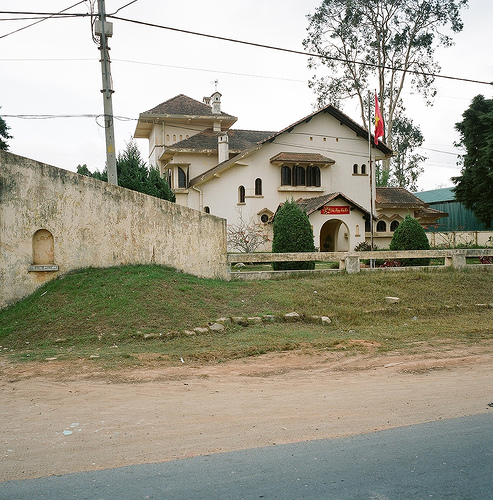Child of Two Worlds
Fairy tale princesses and happy endings are no match for the blood, loss and despair found in the Vietnam stories Andrew Lam’s mother tells. Lam’s essay Child of Two Worlds pushes us through the heart-wrenching process of uprooting from a native culture to assimilating into a new world.
Lam explores the differences between his mother and him as they succumb to a new world and way of life. Being a young boy when his family escaped to American he assimilated faster and easier than his parents. He admits, “[I was] old enough to remember Vietnam, I was also young enough to embrace America, and to be shaped by it” (7). His mother has a more difficult time trying to cope with the loss of her family back home and the new customs of her new world. Initially, she mourns the loss of her home, refusing to see herself as a citizen of the U.S. but as a “Vietnamese living in exile” (8). Lam uses his colorful linguistic flair to describe his mother’s eventual give-in to Americanism and her new life:
“A cliché to native-borns, the American Dream nevertheless seduces the sedentary Vietnamese to travel from halfway around the world. It’s the American Dream that kissed her hard, tongued her, in fact, and in the morning she awakes to find, to her own amazement, that she can readily pronounce mortgage, escrow, aerobic, tax shelter, GPA, MBA, MD, BMW, Porsche, overtime, stock options. Gone is the cyclical nature of her provincial thinking, and lost is her land-bound mentality. She finds that she’s upwardly mobile, that she is connected to other countries by virtue of her relatives spreading across the globe and by new communication technologies. She can email relatives as far away as France and Hong Kong. She can see the future” (10).
Lam’s transition is much smoother, much quicker and much more complete. He
speaks of his memory of brandishing the English language on the playground like
it was his sword cutting him a place in the new world in which he had found himself.
He went so far as to take on a new persona, a more ‘American’ persona, complete
with an American name- “Andy, call me Andy”. He lined his shelves not with
relics of the past but with his journalism awards; his individual
accomplishments, his proofs of success and progression (7).
But
then, as part
of the cyclical nature of age and wisdom, Lam reaches a more mature age
and summons his pride and admiration for his home country and culture.
He
recognizes, “were it not for my ties to the Vietnamese people, their
trials
and tribulations, were it not for my own memories of the life that was
taken
from me, my American individuality would be shallow” (14). Embracing
these two
worlds Lam was thrust from and to as a child, eventually forces him to
question
his sense of home. Is Vietnam, the place of his birth, a place that
drenches
his heart in mystic wonder and awe, where his umbilical cord is buried
in an
earthen ware pot under the garden, is that his Home? Or is America, the
land
that has brought him his individuality, success and a comfortable way
of life
his Home? Can “transnationals whose memories are layered and whose
biographies
transgress national boundaries” claim a ‘Home’?
Lam reconciles this enigma
gracefully, pensively, “My sense of home these days seems to have less to do
with geography than imagination and memories. Home is portable if one is in
commune with one’s soul. I no longer see my identity as a fixed thing, but
something open ended” (15). Eventually, Lam’s mother merges more and
more of her Vietnamese-ness with her “American-ness”: letting the grandchildren
watch The Little Mermaid rather than listen to her traditional Vietnamese
stories, going to the gym, lifting weights. “Home” does not have to be a label
on a map; As Lam shows us through vivid compelling language and enchanting
story, Home lives in us, in our minds, in our bodies and in our spirits.
Listen to Lam read from "A Child of Two Worlds"
 |  |
While Lam has lived in both California and Vietnam, he now must decide if "home" is in the Bay Area, where he has made his living, or if "home" reamains Da Lat, where he was raised.